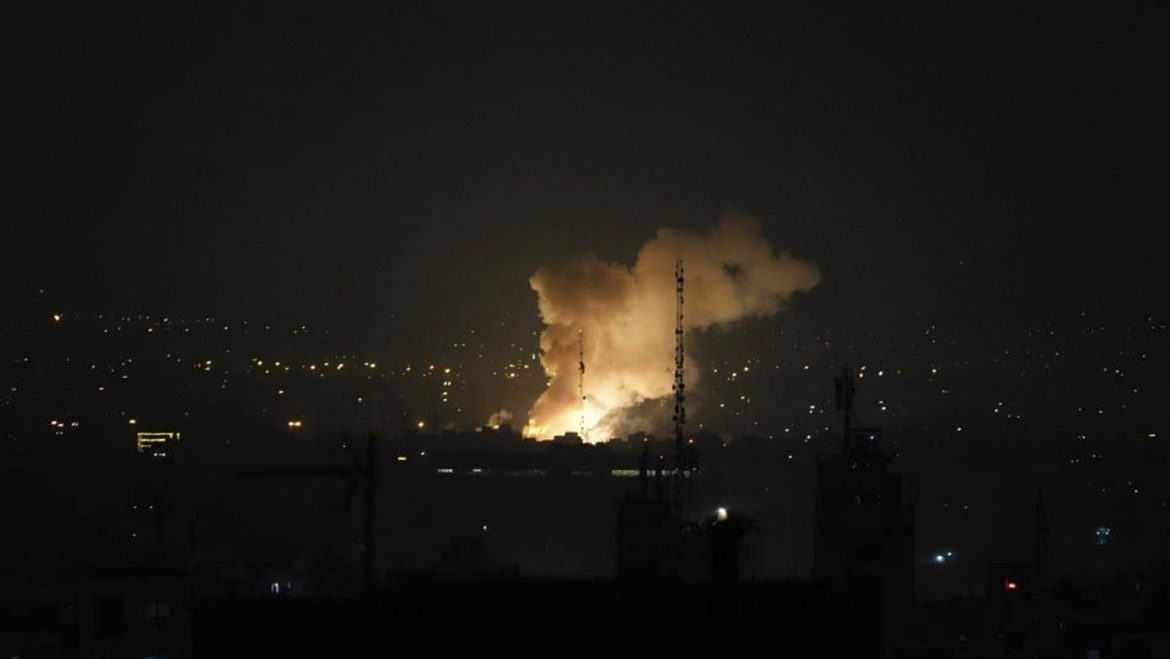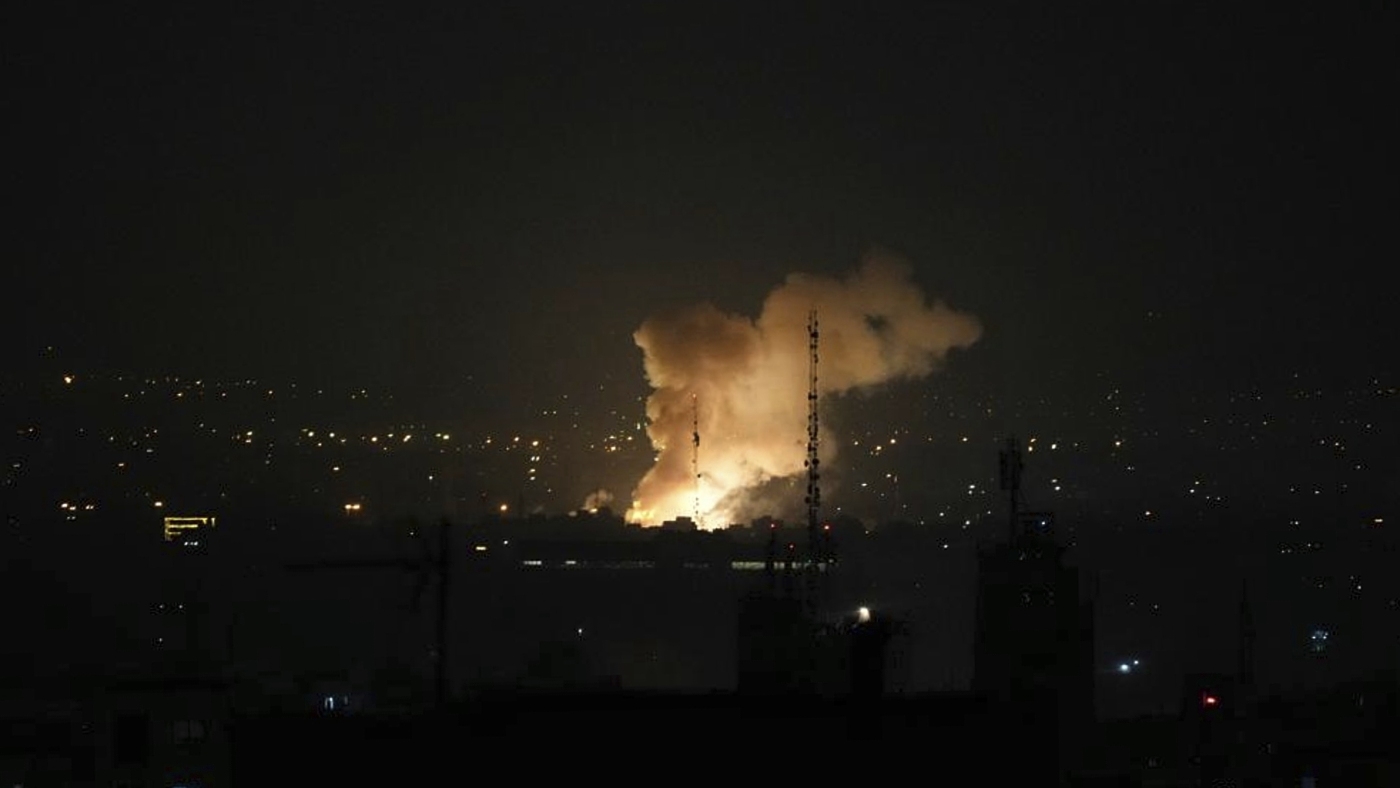Escalating Tensions: Israel’s Strikes on Iran and the Brewing Retaliation
The highly volatile relationship between Israel and Iran has taken a sharp, dangerous turn as Israel launched multiple airstrikes targeting Iranian military and nuclear facilities. This aggressive move has sent shockwaves across the Middle East, triggered global concerns about oil price surges, and propelled both nations into a tense standoff with the specter of imminent conflict looming large. Understanding the intricate details of these developments, the strategic motivations behind them, and their potential consequences requires a layered examination.
—
Israel’s Preemptive Offensive: Strategic Calculus and Execution
Israel’s airstrikes represent a significant and deliberate escalation. According to multiple reports from the Israeli Defense Ministry, the operation was preemptive—aimed squarely at disabling Iran’s nuclear program and missile capabilities. These targets include strategic military installations believed to be central to Iran’s ambitions of advancing nuclear weapons technology, a program Israel perceives as an existential threat.
The timing and scale—described as “dozens” of strikes—indicate meticulous planning and the seriousness with which Israel views the Iranian threat. The strikes reportedly took place around 3 a.m. local time in Tehran, demonstrating operational precision to minimize Iranian early defenses and maximize impact.
Israel’s declaration of a state of emergency and restrictions—including bans on schools, social gatherings, and non-essential work—reflect a reality where Israel anticipates near-immediate retaliation by missile and drone attacks. The Israeli government is thus mobilizing civilian and military preparedness to withstand potential onslaughts on its territory and population centers.
—
Iran’s Position and Initial Responses
While Iran has downplayed the material damage of the strikes, labeling them as causing “limited damage,” their official rhetoric frequently stresses swift and forceful retaliation to any act of aggression. Iranian leaders have publicly vowed to uphold their nuclear enrichment rights despite external pressures and repeated military confrontations.
Iran’s preparation is twofold: military readiness for a possible war scenario is being ramped up, as indicated by orders to the armed forces to be prepared, while at the same time Tehran appears to be calculating ways to avert a full-blown war—suggesting a nuanced strategic posture balancing deterrence and damage control.
The geopolitical implications extend beyond immediate retaliation; Iran’s allies in the region and proxy forces, such as Hamas and Hezbollah, complicate the security landscape. There are worries that these proxy groups could be leveraged for asymmetric warfare, further destabilizing the region.
—
Regional and Global Implications
The strikes—and subsequent retaliation fears—have significant implications for regional stability. The Middle East is already a crucible of rivalries, sectarian divides, and proxy wars. An open conflict between Israel and Iran risks igniting wider hostilities given the interconnected alliances and antagonisms.
Oil markets have reacted swiftly, with prices soaring on fears of prolonged regional instability that could threaten supply routes and production facilities. The disruption could exacerbate global energy insecurity, adding economic strain worldwide.
The United States, while denying direct involvement in the strikes, is closely monitoring the situation. American diplomats and military officials have expressed hopes to prevent escalation, but intelligence and embassy warnings reveal high alert levels. The U.S. appears to be maintaining a cautious distance, likely seeking to balance support for Israel with avoidance of a larger regional war.
—
Anticipating Retaliation: Israel’s Preparedness and Public Sentiment
Israel is bracing for immediate retaliation. Its leadership has warned citizens of incoming missile and drone attacks, with widespread civil defense measures activated. Sirens and safety drills underscore the gravity of the threat, transforming daily life into a high-alert atmosphere.
Public sentiment in Israel is likely mixed—on one hand, there is support for decisive action against a perceived existential threat; on the other, fear of an intensified conflict with devastating human and economic costs. The government’s emergency declarations and strategic communications are designed to manage public anxiety while projecting strength.
—
The Broader Strategic Context: Nuclear Ambitions and Security Dilemmas
At the heart of this confrontation lies the contested issue of Iran’s nuclear program. Israel views any advancement toward nuclear weapons capability by Iran as unacceptable. The strikes are part of a long series of covert and overt actions Israel has taken to disrupt Iran’s nuclear development.
Conversely, Iran insists on its right to uranium enrichment for ostensibly peaceful purposes, rejecting international pressures and sanctions aimed at halting its nuclear activities. This nuclear dimension transforms the bilateral hostility into a global-security concern, complicating diplomatic efforts.
—
Conclusion: A Perilous Brinkmanship
Israel’s airstrikes on Iran represent a sharp intensification of a long-festering conflict, pushing both nations toward a hazardous brinkmanship. The immediate aftermath is a fragile and volatile calm, overshadowed by threats of swift and forceful Iranian retaliation.
The regional consequences could be severe, risking a broader conflagration across the Middle East with far-reaching global economic effects, especially on energy markets. Israel’s domestic mobilization reflects the seriousness of the threat, while Iran’s cautious rhetoric signals a complex strategic calculus balancing retaliation with the risk of wholesale war.
In an environment where every move is laden with existential risk, the coming days and weeks hold pivotal significance—not only for Israel and Iran but for a global community watching anxiously as violence threatens to unravel the region’s precarious stability.


